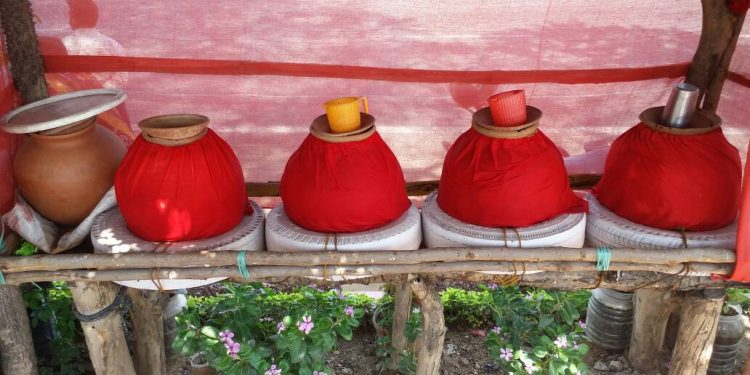Bhubaneswar: With rising temperatures due to erratic climatic conditions and urban heat retention, the Housing & Urban Development (H&UD) department has issued a standard operating procedure (SOP) to mitigate the impact of heat waves in urban areas.
All urban local bodies (ULBs) and the public health engineering organisation (PHEO) have been instructed to ensure an uninterrupted drinking water supply. Water pipelines must be maintained, and complaints regarding water scarcity should be addressed within 24 hours.
Water tankers will be deployed in shortage-prone areas, with additional tankers arranged as needed. Hand pumps and tube wells must remain functional, with spare parts readily available for repairs. Control rooms will operate in PHEO and WATCO offices to handle water-related complaints. Authorities must track heatwave warnings issued by the India Meteorological Department (IMD) and liaise with the state Emergency Operations Centre (EOC) if necessary.
ULBs will set up drinking water kiosks, known as Paniya Jal Bitaran Kendra, at key locations such as bus stands, railway stations, markets, and government offices. These kiosks, managed by Mission Shakti SHGs, NGOs, and local federations, must ensure hygienic water distribution with long-handle dispensers and daily water replacement. Strict action will be taken against organisations that discontinue services after initial publicity.
To combat heat retention and air pollution, authorities will strictly enforce bans on burning municipal solid waste, garden residues, and coal briquettes used by roadside eateries. Residents are encouraged to place water pots outside their homes for birds and animals, ensuring they are cleaned every alternate day.
Construction agencies and households must cover construction sites to prevent dust pollution and ensure proper disposal of debris. Sprinkling water over uncovered areas and covering transport vehicles carrying sand, cement, and debris with tarpaulin sheets will be mandated.
Also Read: After Delhi stampede, several measures taken to avoid untoward incidents in future
Additionally, the roadside earthen layer should be maintained at a lower level than the metal road to prevent dust accumulation.
To enhance urban resilience, water bodies in and around cities will be rejuvenated, restored, and cleaned for public use. Authorities, including the police, forest department, and Odisha State Pollution Control Board (OSPCB), have been directed to strictly enforce environmental laws and National Green Tribunal (NGT) guidelines.
The Odisha government remains committed to ensuring that urban areas are equipped to handle extreme heat, protecting residents from its adverse effects.
PNN







































